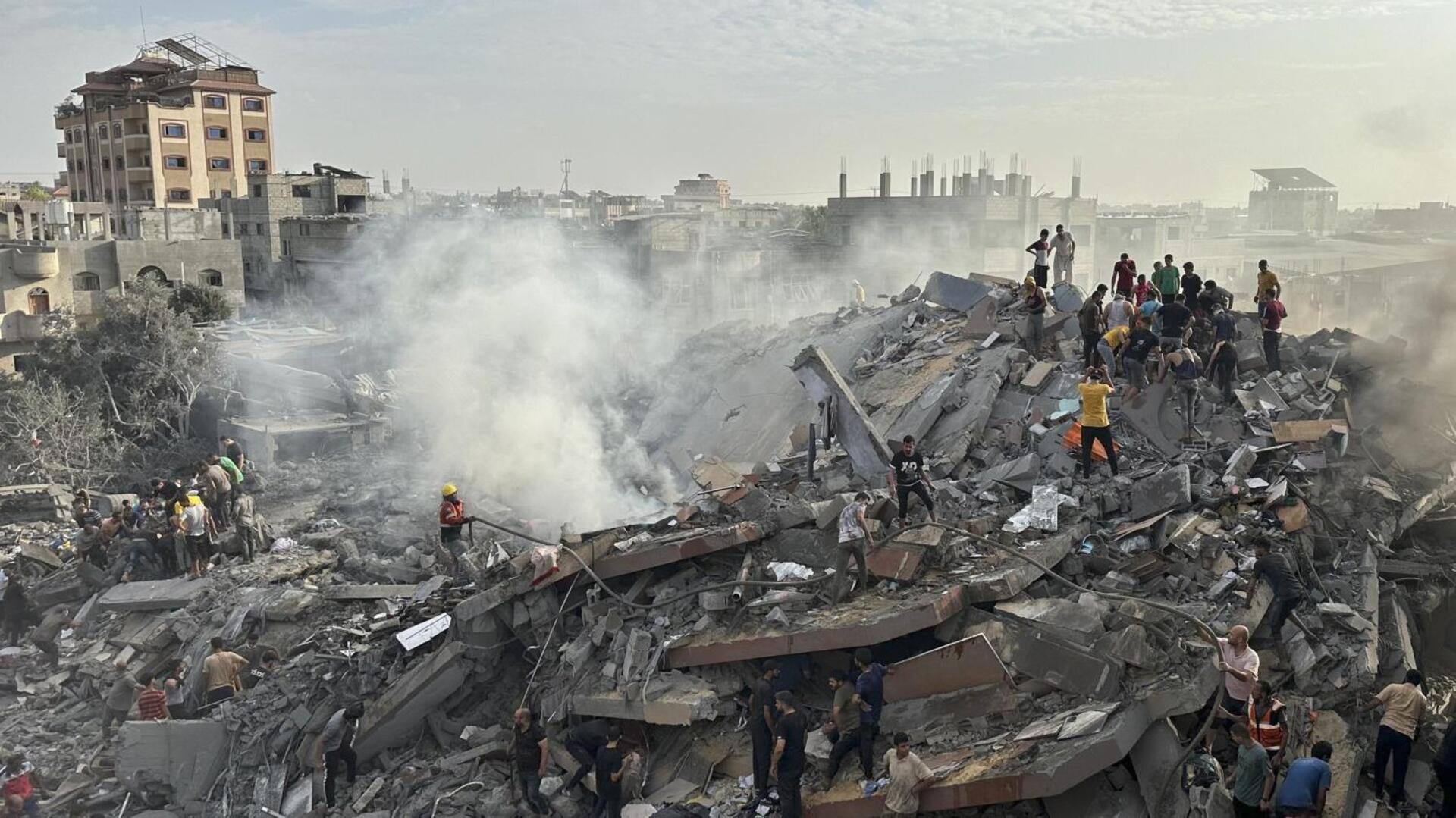
What's in the Israel-Hamas ceasefire deal: Explained
What's the story
High-level negotiations between Israel and Hamas are reportedly on the brink of finalizing a ceasefire agreement in Gaza. The draft proposal, facilitated by United States and Qatari mediators, proposes a six-week ceasefire with an exchange of hostages for Palestinian prisoners. In the initial phase, Hamas is expected to release 33 hostages, both living and deceased.
Ceasefire terms
Israeli troop withdrawals and humanitarian aid increase
The proposal also details Israeli troop withdrawals from most areas of the Gaza Strip and an increase in humanitarian aid to the region. However, Israel will continue to remain along the Philadelphi Corridor on the Egypt-Gaza border during this initial phase. A contentious issue remains over the size of a buffer zone within Gaza, with Hamas seeking a 300-500 meter zone and Israel a larger 2,000-meter zone.
Agreement details
Return of Sinwar's body excluded from ceasefire deal
Notably, the deal doesn't include the return of the body of Yahya Sinwar, a former Hamas leader killed by Israeli troops. An Israeli official firmly stated, "It will not happen. Period." The agreement also permits unarmed residents of northern Gaza to return home under unspecified security measures. US President Joe Biden expressed optimism about this deal, saying it would "free the hostages, halt the fighting, provide security to Israel," while allowing increased humanitarian aid to Palestinians.
Political dynamics
Criticism and uncertainty surround Gaza's future governance
However, Bezalel Smotrich from Israeli Prime Minister Benjamin Netanyahu's coalition criticized the deal as detrimental to Israel's national security. "We will not be part of a surrender deal that would include releasing terrorist hostages, stopping the war and dissolving its achievements that were bought with much blood, and abandoning many hostages," Smotrich wrote on X. "This is the time to continue with all our might, to...open the gates of hell on Gaza until Hamas surrenders completely and all...hostages are returned."
Ongoing talks
Negotiations continue in Doha amid complex political dynamics
Negotiations are scheduled to resume in Doha with hopes of wrapping up before US President-elect Donald Trump's inauguration on January 20. Trump had earlier warned there would be "hell to pay" if hostages weren't released by the date of his inauguration. The result of these talks remains critical as both sides hope to finalize an agreement and put an end to hostilities that have seen more than 45,000 Palestinians killed.